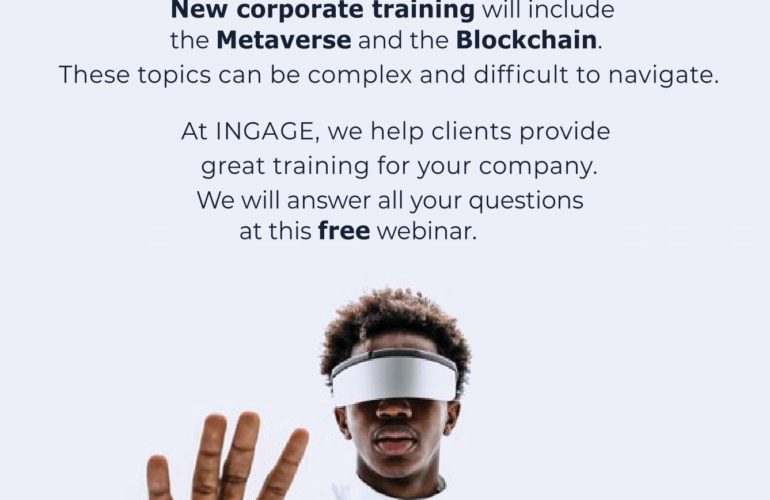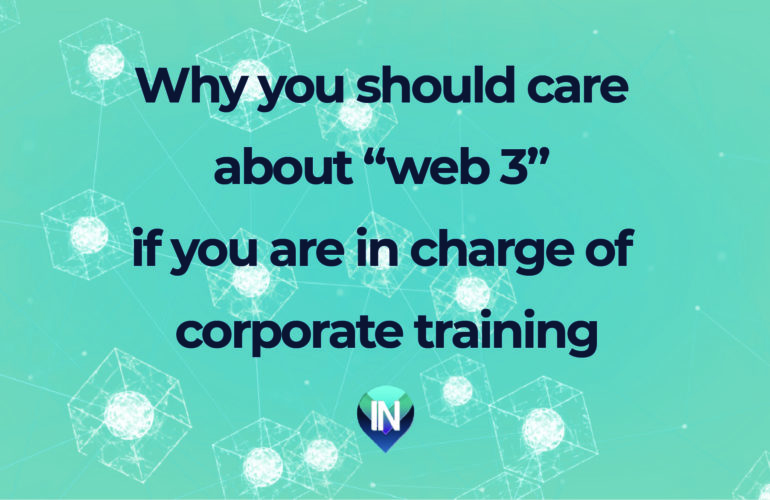First of all, what is web3?
One day, a brilliant man, woman or group of persons named Satoshi Nakamoto – will we ever know? – created a brand new concept, the blockchain, with its first cryptocurrency, the now-famous Bitcoin, in a bid to react to the financial crisis that had made millions suffer.
He had created a totally decentralized system where you could potentially store tremendous wealth, without even having to trust the people part of the system. Huh? How is that even possible? Well, we will go into one of the next articles, but not today.
So what’s the link between Web 3 and training?
Now, back to the reasons why you should care about web3 if you are in charge of corporate training.
You might have worked with e-learning before 2020. If not, since covid has obliged most organizations to move to online training for the past 2 years, you have probably felt the pain due to the need for a very fast digitization of your training curriculum.
Besides the usual challenges of digitizing training, you might have also experienced some difficulties in getting your colleagues to complete the online modules you created for them with so much work.
Indeed, completion rates in the industry are quite low on average and when they are not, management has quite probably used the stick at least as much as the carrot. So, motivation is the key, whether it is intrinsic or extrinsic.
In training, the best is always to have participants be motivated by the topic itself that they learn, the intrinsic motivation. However, what if they are not that intrinsically motivated?
In this case, obviously, you can go the route of extrinsic motivation. So, imagine an incentive program. You give points to people who have completed their courses. You even add a multiplier for people who have completed their courses with the right time frame for example.
You can certainly create a great incentive program adapted to your company’s culture. You know your colleagues. You know what makes them tick.
However, these points are just arbitrary values put in your IT system. They have no real value per se and unless you have a broad range of partnerships that subscribe to your program, these points are worthless outside your organization or once your colleagues move to another company. So, in the very vast majority of cases, people will not see these points as really having a value in the future.
Now, imagine that instead of valueless points you actually can give some digital tokens – in the form of coins or NFTs – that actually have a real value, even outside your organization. Would people be more inclined to try to collect them?
Obviously, there are more ways to use Web 3 for education (e.g. remuneration for authors and other contributors). Do you see any other use? 🙂
Please comment below and like this post if you would like more posts on the topic!
#nextgen #training #corporatetraining #headoftraining #trainingmanager #innovation #blockchain #web3 #web2 #web1 #incentiveprograms #bitcoin #ethereum #points #getridofpoints #replacepointsbycoins #tokens #NFTs









This webinar is primarily designed for training, L&D managers as well as product managers. We will draw on our experience from the insurance industry, but it can also be relevant for other industries.
Please note that in order to ensure the quality of our discussion, we will keep the number of attendees to a maximum of 30 people. Apply for an invitation.
We are looking forward to a very interesting webinar with you! 🙂
Time of the event:
Zürich (Switzerland – Zurich) Tuesday, 7 June 2022, 17:00 CEST UTC+2 hours
For your own time zone:
Note: you are also welcome to register to our INGAGE Newsletter if you want to be updated on the latest events about engaging training for the insurance industry!